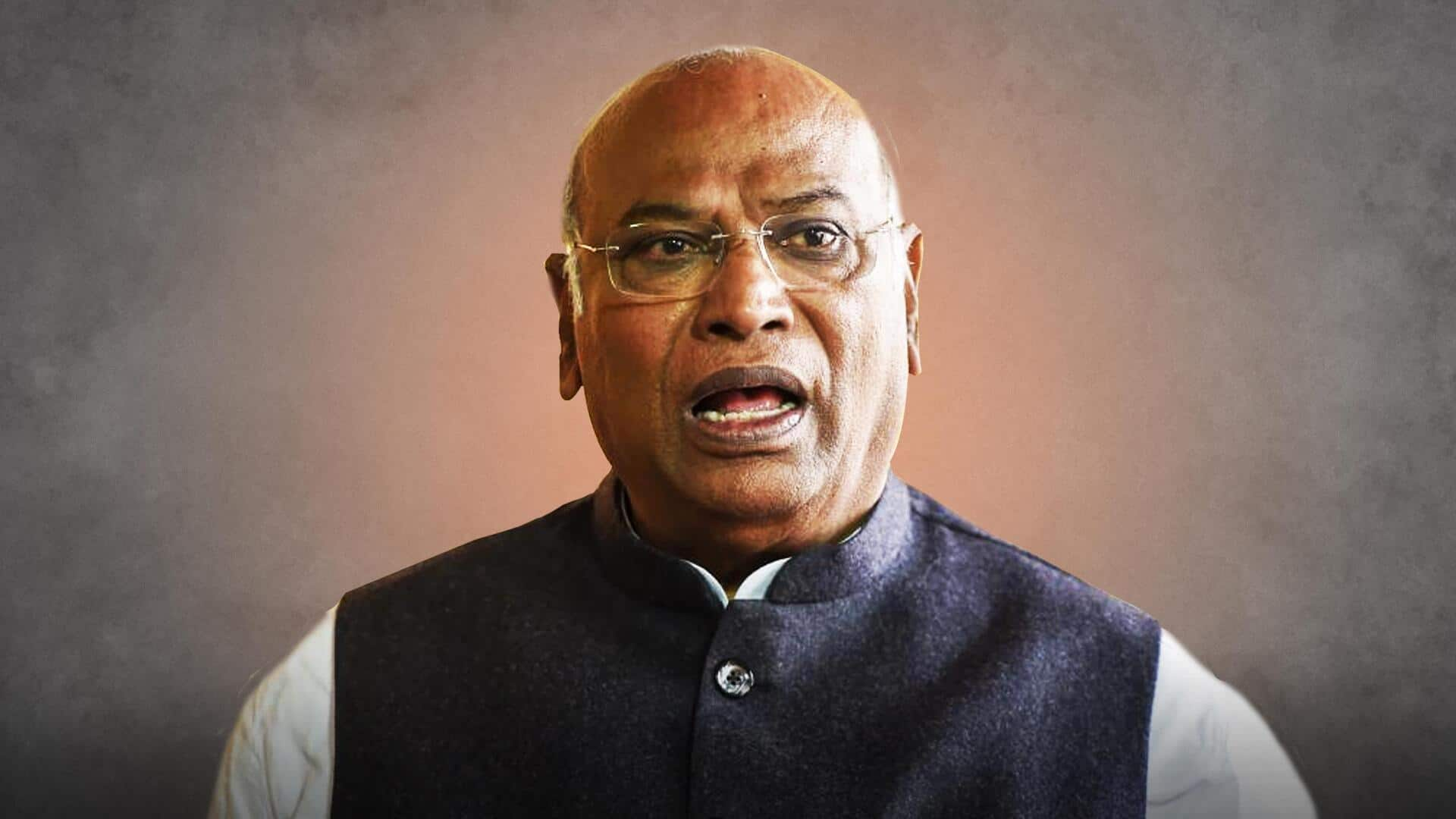
'Undemocratic': Congress opposes idea of 'One Nation, One Election'
What's the story
Congress has strongly opposed the concept of simultaneous elections in India, labeling it as "undemocratic."
The party said the idea goes against the guarantees of federalism and the basic structure of the Constitution.
Congress chief Mallikarjun Kharge also demanded that the idea be abandoned and the high-powered committee formed to study it be dissolved.
He urged panel leader Ram Nath Kovind "not to allow his persona and the office of the former president of India to be abused by Centre..."
Context
Why does this story matter?
The idea of "One Nation, One Election," proposes holding simultaneous elections for the Lok Sabha and all state assemblies across the country.
While Lok Sabha and state Assembly elections are held every five years—or earlier if a legislature is dissolved due to any reason—their tenures are not synchronized and are separated by months and years.
This results in two election cycles every year.
In contrast, the proposed system calls for conducting all the polls simultaneously.
Details
'One Nation, One Poll' committee biased, says Congress chief
Kharge also slammed the makeup of the committee as "biased."
He said the panel was set up without providing significant representation to opposition parties leading various state governments that would be impacted by its recommendations.
He also said that conducting simultaneous elections would necessitate dissolving several legislative assemblies midway through their terms.
He said this would be a betrayal of voters in those states.
What Next?
Kharge rejects argument of 'financial savings'
The Congress chief also rejected the claim that holding simultaneous elections would lead to financial savings.
He said poll expenses account for less than 0.02% of the total Union budget for the previous five years.
He said that if the committee, government, and Election Commission of India (ECI) were genuinely committed to reducing election spending, they should make the funding process more transparent, particularly regarding electoral bonds.
Details
Don't agree with simultaneous polls concept: Mamata
Last week, West Bengal Chief Minister Mamata Banerjee wrote to the high-level panel on "One Nation, One Election" on Thursday, calling simultaneous polls "a design to subvert the basic structure of the constitution."
In a letter to the panel secretary, Dr. Niten Chandra, Banerjee wrote that "one nation, one election" creates a system to allow "autocracy (in) a democratic garb to enter the national public arena."
"I'm against autocracy and, hence, am against your design," she wrote.
Details
History behind 'One Nation, One Poll'
The first general elections in independent India were held in 1951-52.
Simultaneous elections remained the norm until 1967 before being disrupted by the premature dissolution of some state assemblies in 1968 and 1969, along with the Lok Sabha in 1970.
Over a decade later, in 1983, the Election Commission (ECI) proposed bringing the system back.
The ECI's annual report noted that the erstwhile government decided against simultaneous elections.
The Law Commission's report in 1999 also supported simultaneous elections.